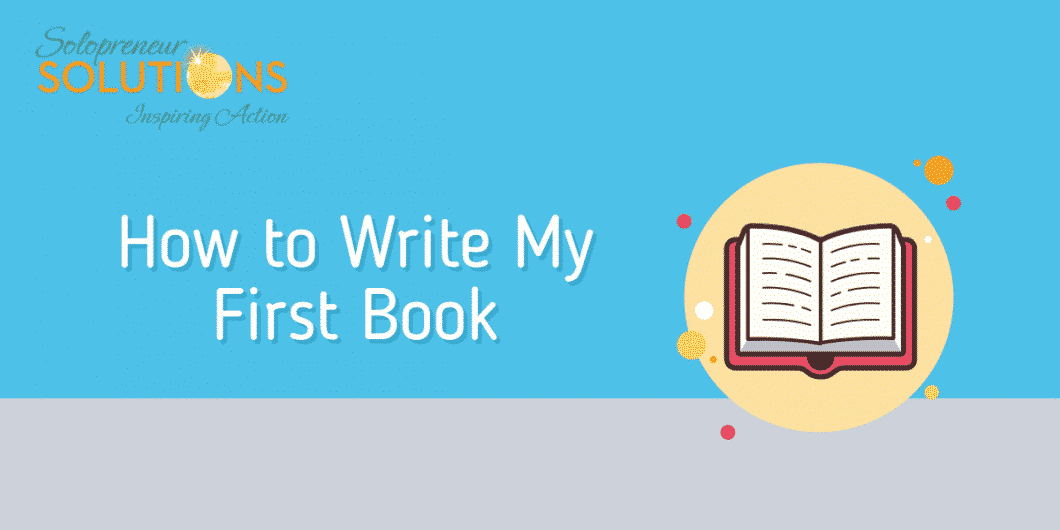
If your mission is to write my first book, you have undertaken a daunting ambition. In short, this is no easy job. Writing anything can be arduous even for writers.
You must be diligent and determined to persist through to the finish even when you do not want to. A writer must be meticulous and pay close attention to every detail. That can be trying and challenging.
Writing a book requires you to retain an unusually extended train of thought. It is this extended train of thought that keeps your writing process on track.
You must retain focus and stay within the confines of your overall theme. This is essential for achieving your goal of writing a book in the first place. Doing so results in a well-written, cohesive book that accomplishes its mission.
Your book may feature many or only a few central characters. The whole series of related events with them, and how these play out, is the essence of your book. How individual authors achieve this is as unique and varied as the authors who write.
There is no cast-in-stone method for this process. There are however certain parameters to the art of writing. If you follow them, they can make the whole process much easier and even enjoyable.
Read and keep in mind the helpful tips below. They will greatly assist you with your expressed desire to write my first book. Come back to them as often as necessary during your writing process.
Fact or Fiction
Fact
Decide if your book is going to be factual or fictional. This decision sets the intent of the book. The intent establishes the overall tone of your book.
If your book is a factual retelling of a real event involving real people, you are bound by a whole different set of standards and methods for recording these actual events.
What is said and written about people has a way of affecting their lives and the lives of those in their familial and social circles. You cannot be careless or untruthful with such writing.
Fiction
On the other hand, if your book is fiction, you have a lot more freedom. You get to make the whole thing up. Fiction has the advantage of weaving a tapestry created strictly from the writer’s imagination.
You have complete license to develop characters and the events of their lives practically as you go. Of course, even this must be organized and brought to a logical conclusion by the end of the book.
Interest or Passion
Write about what you have a keen, even passionate interest in. Whether it is fact or fiction, your topic must be either something you know well, or something which you wish to research and learn about.
This is the key to effective writing. By effective writing, I mean writing that makes that all-important, personal connection. It is this critical, personal connection that separates popular, successful books from that never mind list of don’t-waste-your-time tomes.
Writing Process
Okay, so you have decided whether your book is a fictional or factual work. You have chosen a topic about which you are extremely passionate, and you are ready to roll, well, sort of.
Your next big problem is how to get started. Waxing philosophically about solving the world’s problems is one thing.
Writing down a process for doing so is quite a different breed of task. Even if your book is fictional, there is still a means and a way to get your tale told effectively.
Book Focus
You must decide the central venue for delivering your book’s central, intrinsic message. Will your writing use characters and their words, thoughts and actions to deliver your message?
Do you instead have a many-faceted plot to present your point, or is it primarily a setting peace?
Usually, books contain multiple, intertwined elements but generally focus on a particular detail for the preponderance of their content.
For instance, a book may feature a setting in the 1800’s west. The setting can be either the gist of the book, or it can be merely a backdrop for presenting the characters and the message of the book.
Outline, Outline, Outline
Once you have chosen your topic, decided your book’s genre, fact or fiction, and determined the book’s method for telling your story, you need to organize your effort.
Did I mention outline? This is the crucial phase of writing your book. It does not have to be cast in stone, but it does need to be a layout of your writing plan.
It must include issues of the topic covered or highlights of the fictional account told. Your outline must also detail the order of your content. This is the part that gives you the essential direction for writing your book.
Outlines can be adjusted as the story line evolves. The outline should be at least a guide that keeps you focused on your original intent. If you stray too far from your outline, you really do not have an outline after all.
Another consideration that can affect your outline is whether your book is a single unit, or whether it is part of a series.
Do you plan to write a single book and say all that you need to say on a subject, or do you envision a series to tell a continuing and ongoing story?
Begin your outline by writing a summary of the issue you plan to cover or the highlights of the yarn you wish to share. It does not need to be lengthy.
Three to six sentences should be sufficient, depending upon the complexity of your book. To be complete, your summary should contain the same five Ws you learned in grade school. Your book summary should include:
- Who
- What
- When
- Where
- Why
This summary should give you the general contents of your book outline. In other words, use the summary to develop your outline.
Your outline should make up the Table of Contents of your book if you wish to include one. You may also think you need a Table of Contents to give the reader specific highlights or particular points you wish to stress.
Conclusion
The above pointers should get you well on your way of your initially stated mission to write my first book. This effort guides you in the how to get started process. It is not a treatise on the technical aspects of the actual writing process. Engaging writing is a talent more than a skill, and talent cannot be taught.
